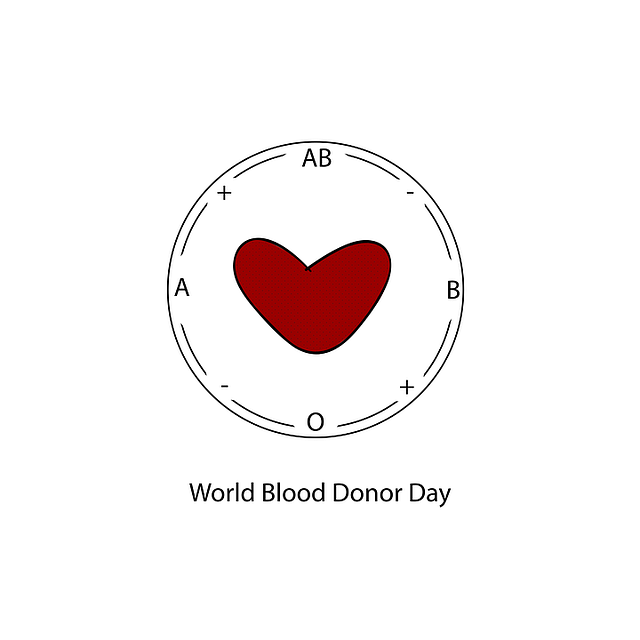Infertility can be emotionally challenging, but understanding it as a medical condition offers hope. Egg donor programs provide high-quality eggs from carefully matched donors, increasing pregnancy success rates and empowering individuals to overcome fertility issues. Navigating the emotional complexities of egg donation requires self-compassion, support, and professional guidance. Global communities and organizations offer resources, creating a sense of belonging and helping infertile women build families with donor eggs.
“For many women facing infertility, exploring options to build their families is an emotional journey. One path gaining traction is utilizing egg donor programs tailored for infertile women. This article delves into the multifaceted support network available to these individuals, from understanding the complexities of infertility and embracing donor eggs, to building a supportive community and navigating the mental health considerations post-donor egg use. By exploring these aspects, we aim to illuminate the emotional landscape for women embarking on their parenthood journey with donor eggs.”
Understanding Infertility and the Role of Egg Donor Programs for Women
Infertility can be a deeply distressing and emotionally challenging experience for many women. It’s important to understand that infertility is a medical condition, often caused by various factors like hormonal imbalances, uterine issues, or age-related declines in fertility. For women who struggle with it, the journey towards parenthood might feel like an impenetrable labyrinth. This is where egg donor programs step in as a beacon of hope. These initiatives offer a solution for infertile couples and single women who desire to start a family by providing high-quality egg donors.
Egg donor programs facilitate a compassionate and scientifically advanced approach, matching recipients with suitable donors based on shared medical profiles and, often, compatibility with life goals and values. This process not only increases the chances of successful pregnancies but also empowers women to navigate their fertility challenges with dignity and support. For many, it’s a game-changer that enables them to experience the joy of motherhood when traditional methods may be out of reach.
The Emotional Journey: Coping with Infertility and Embracing Donor Eggs
For many infertile women, the journey to motherhood is often fraught with emotional challenges and setbacks. Infertility can evoke a range of complex feelings, from profound sadness and grief to anger and guilt. The process of accepting one’s infertility and exploring alternative paths to parenthood is deeply personal and emotionally demanding.
When donor eggs enter the equation, it represents both a turning point and another layer of emotional complexity. For women who have struggled with infertility, embracing donor eggs can be a step towards fulfilling their dream of becoming a mother. It involves coping with feelings of loss related to traditional fertility options while simultaneously cultivating hope and gratitude for the gift of another woman’s eggs. This emotional journey requires self-compassion, support systems, and perhaps even professional guidance to navigate the unique blend of emotions that arise during this transformative experience.
Building a Support System: Resources and Communities for Women Using Donor Eggs
Building a strong support system is invaluable for women navigating the journey of using donor eggs to achieve pregnancy. This process can be emotionally complex, and having a network of understanding individuals can make all the difference. Many cities and countries have dedicated communities and resources tailored specifically for women who are infertile and considering egg donation. These may include local or online support groups where women share their experiences, offer advice, and provide emotional comfort to one another.
Additionally, there are numerous organizations worldwide that advocate for and educate on reproductive health issues, including donor egg use. These resources often serve as a wealth of information, connecting women with successful stories and practical guidance. Such networks foster a sense of belonging and can guide individuals through the legal, medical, and emotional aspects of using an egg donor as part of their family-building journey, ensuring they feel supported every step of the way.
Navigating the Road to Parenthood: Mental Health Considerations After Using Donor Eggs
Navigating the road to parenthood is an emotional journey, especially for women who have chosen to use donor eggs as part of their fertility treatment. This decision can bring a mix of emotions, from hope and excitement to anxiety and uncertainty. Many infertile women find themselves navigating uncharted territory, facing unique challenges that require mental health support.
After successfully using donor eggs, it’s common for individuals to experience a range of feelings related to their new family structure. They might struggle with questions about identity, potential biases, or concerns about revealing the truth to their children in the future. Additionally, the emotional toll of the fertility process itself—including the disappointment, frustration, and financial strain—can linger. Professional mental health support can be invaluable during this period, helping women process these emotions, build resilience, and foster a sense of security as they embark on their parenting journey.
For women navigating infertility with the help of an egg donor, building emotional resilience is key. The journey can be emotionally complex, but with access to supportive communities and resources, it becomes a path to parenthood. Understanding both the medical aspects of egg donor programs and the unique emotional challenges empowers infertile women to embrace this alternative route to family-building. By prioritizing mental health considerations and fostering connections within support systems, these women can find solace and ultimately, joy in their parental journey.
